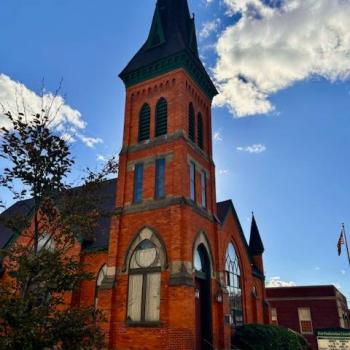Remembering Martin Luther King
On April 4, 1968, Robert F. Kennedy announced the assassination of Martin Luther King Jr. to a crowd in Indianapolis, delivering a heartfelt speech that called for peace and unity in the face of anger and grief. His remarks are considered one of the most significant speeches in American history, as they helped prevent riots in the city that night. He offers these words to the crowd that night:
What we need in the United States is not division; what we need in the United States is not hatred; what we need in the United States is not violence or lawlessness; but love and wisdom, and compassion toward one another, and a feeling of justice toward those who still suffer within our country, whether they be white or they be black.
So, I shall ask you tonight to return home, to say a prayer for the family of Martin Luther King, that’s true, but more importantly to say a prayer for our own country, which all of us love–a prayer for understanding and that compassion of which I spoke.
We can do well in this country. We will have difficult times; we’ve had difficult times in the past; we will have difficult times in the future. It is not the end of violence; it is not the end of lawlessness; it is not the end of disorder.
Martin Luther King stood for peace, nonviolence and hope for our country. His words, his actions were a beacon of justice and equality for all. His legacy endures, reminding us to strive for a world where every individual is valued and respected. As we reflect on his contributions, let us commit ourselves to upholding the principles he cherished and work towards a society that embodies his vision of unity, love, and compassion. Martin Luther King Jr.’s dream is not just a memory, but a call to action for each of us to make a difference, to champion nonviolence, and to foster a community grounded in peace and justice.
Non-Violence
When we think of the ideas of non-violence that King embraced, we tend to look at it from a one-dimensional aspect. Inspired by Ghandi’s resistance to British rule in India, non-violent protest is a multifaceted and profound engagement of civil unrest that urges us to confront injustice with steadfast courage and unwavering love.
King teaches us as Ghandi did to understand nonviolence not as a passive resistance, but as an active force for social change. In our world today, we are observing a number of ways to boycott the Trump regime and the many injustices the oligarchs of our country commit to the least of these. It was King’s message that resonates with enduring relevance, reminding us that true peace is not merely the absence of conflict, but the presence of justice and the flourishing of human dignity.
The Quest for Peace
The quest for peace was long one for Ghandi, his efforts to free India spanned several decades, with his most significant activism occurring from 1915 until India gained independence in 1947, making it a total of about 32 years. His leadership in the Indian independence movement included key events like the Salt March in 1930 and the Quit India movement in 1942. For King and the community of blacks he left behind, the quest continues.
In his Nobel Prize speech, after pointing out the advances of civilization, King offers these remarks:
Yet, in spite of these spectacular strides in science and technology, and still unlimited ones to come, something basic is missing. There is a sort of poverty of the spirit which stands in glaring contrast to our scientific and technological abundance. The richer we have become materially, the poorer we have become morally and spiritually. We have learned to fly the air like birds and swim the sea like fish, but we have not learned the simple art of living together as brothers.
If Martin Luther King Jr. were alive today, his advocacy for diversity, equity, and inclusion might be seen as opposing the “Make America Great Again” agenda. It is crucial to remember King’s call to speak out against hate and injustice, this is going to be an ongoing quest for peace.
Resonance with Today
In 2008, I celebrated with many when Barack Obama was inaugurated the 44th president of The United States. I thought we finally arrived as a nation against racial inequality. I was ignorantly naive. A person of color that I converse with regularly tells me that “they are black every single day”, they knew. While Obama’s inauguration was momentous for our country, it brought out in a very ugly way the racism that has persisted since the beginning of our country, that my black friend was aware of everyday. It is very easy to get angry and upset and awfulize the situation that our country is in right now. I think Kennedy’s words earlier and King’s powerful speeches and his presence must be reflected on right now.
King teaches that civil unrest often arises from deep-seated injustices and that it is essential to address the root causes of these issues rather than merely condemning the actions of those protesting. He emphasized the importance of nonviolent resistance and the need for understanding and dialogue to achieve lasting change and justice.
The Trump regime is not going away, oligarchy rules the day and marginalized will continue to be marginalized. To be true followers of the Jesus of Nazareth, to follow the religion of Jesus and movement that came after him, before it was corrupted with the empire, we must continue to defend the poor and widow, we must stand up for injustice, we must love unconditionally.
We are taught in Galatians 3 that “there is no longer Jew or Gentile, slave or free, male and female. For you are all one in Christ Jesus”. As a person of privilege by the color of my skin and my sex, it is our duty as white male Christians responsibility to be mindful of this verse and be mindful of the divine presence in all people, regardless of their race, sexual orientation or socio-economic status. We must get our white, male centric ego out of the way and practice the compassion of Christ.

















